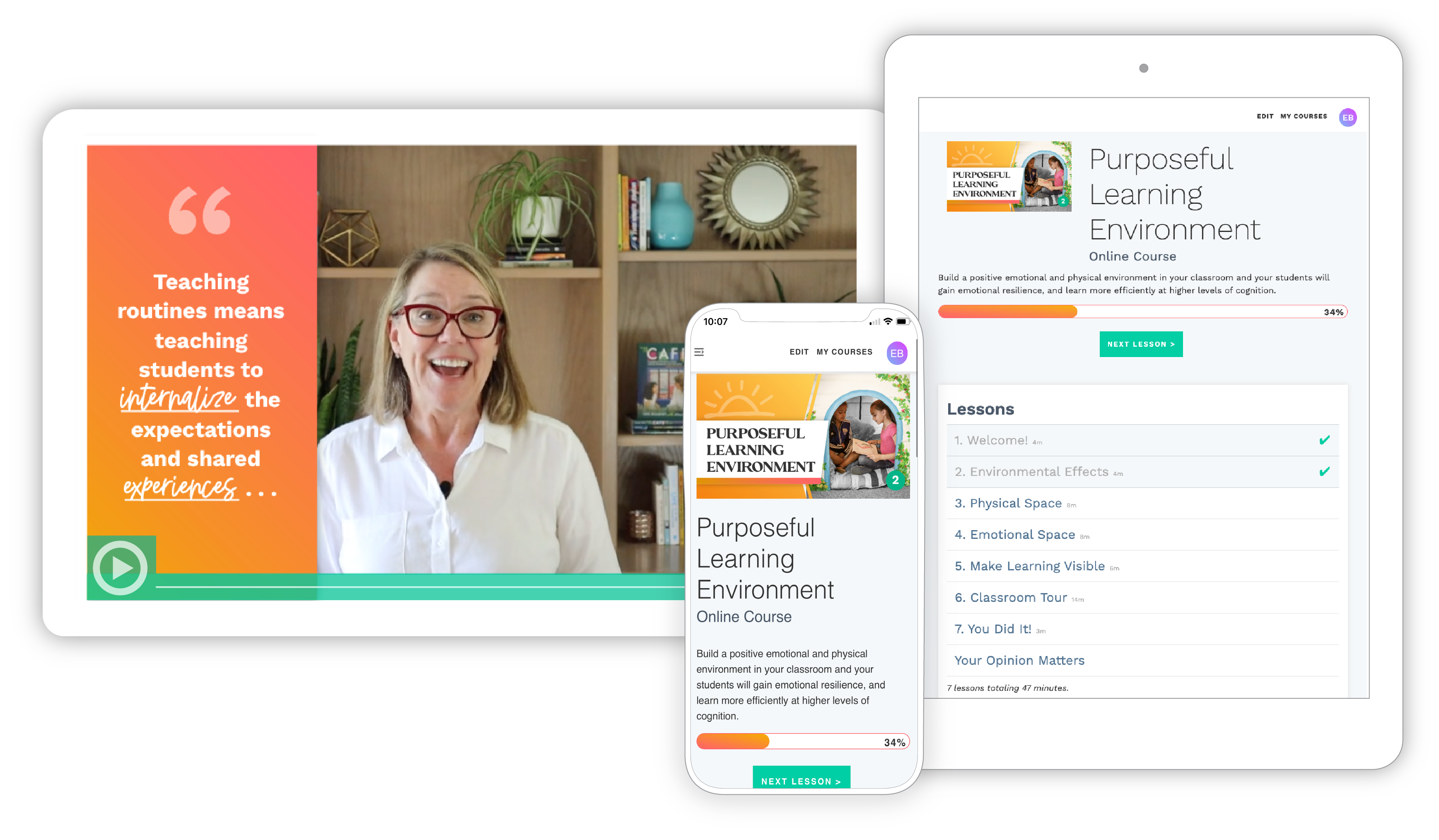Prepared Classroom Components
Learning is broken up into 9 segments (courses) to maximize your time to achieve effective and efficient learning. Each segment is approximately an hour in length with built in breaks so you can be the most efficient with your learning.
1
Relationships FirstWe start with relationships because if a child doesn’t trust and respect us, they certainly won’t want to learn from us! A positive teacher-student relationship affects behavior and academics.
2
Purposeful Learning EnvironmentThe physical and emotional space in the classroom affects stamina, engagement, and motivation, as well as the feelings of joy and belonging of your students.
3
Daily RoutinesStudents don’t know what we want them to do unless we tell them. When Routines are explicitly taught, students know exactly what you expect, so that they can focus their energy on learning.
4
Independent and Collaborative LearningLearning to be independent and work collaboratively with others are lifelong skills. Providing time for reading and working with them to build their engagement gives students the support they need as they become independent lifelong learners.
5
Getting Started with ConferringKnowing your students on a deep level as learners is critical to making sure they are on the right path for their learning success.
Start by using independent reading time for quick checks. Ask targeted questions, record the information, and keep track of meetings and student progress in a conferring notebook. You will be well on your way to the Assessment and Goal Setting course.
6
Brief and Effective LessonsWith each passing minute of a lesson, your students are losing attention. Lengthy lessons with more than one teaching target are getting in the way of students’ optimal growth.
Commit our lesson structure to memory and teach the way the brain learns best.
7
Progress Monitoring and AccountabilityFeel empowered to make informed instructional decisions, ensuring that every student stays on track toward their learning goals—and is accountable for their learning.
8
Authentic ApplicationCritical analysis of the work we are having students do throughout the day is so important. Are we merely keeping them busy, or are they authentically transferring their learning?
There is no substitute for actual reading and writing.
Buying for a group?
You have options on how your staff progresses through the training. Because the courses are 1 to 1 ½ hours, there is built-in flexibility in how you divide the content over your professional development days.
Pull staff together after each course for group discussion using questions found in the detailed guidebook you will be provided. This is a great way to keep everyone moving forward on the same page toward the same goal. And, if you prefer, have staff members complete the coursework on their own. No matter what you choose, each online course includes everything they need for implementation.
Register now with a purchase order or card and your colleagues will have access to the courses within one day of purchasing. If you need a quote for PO purposes, click the button below.
